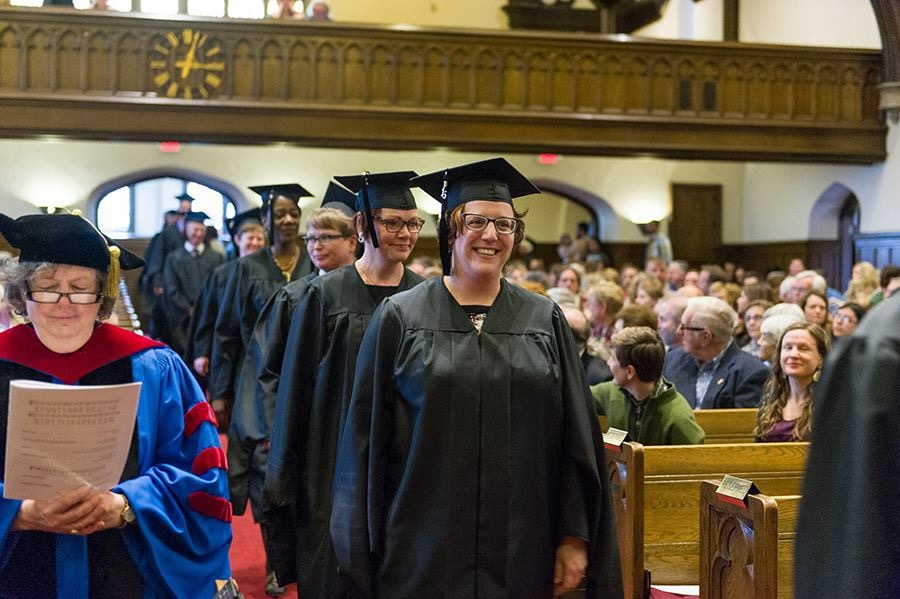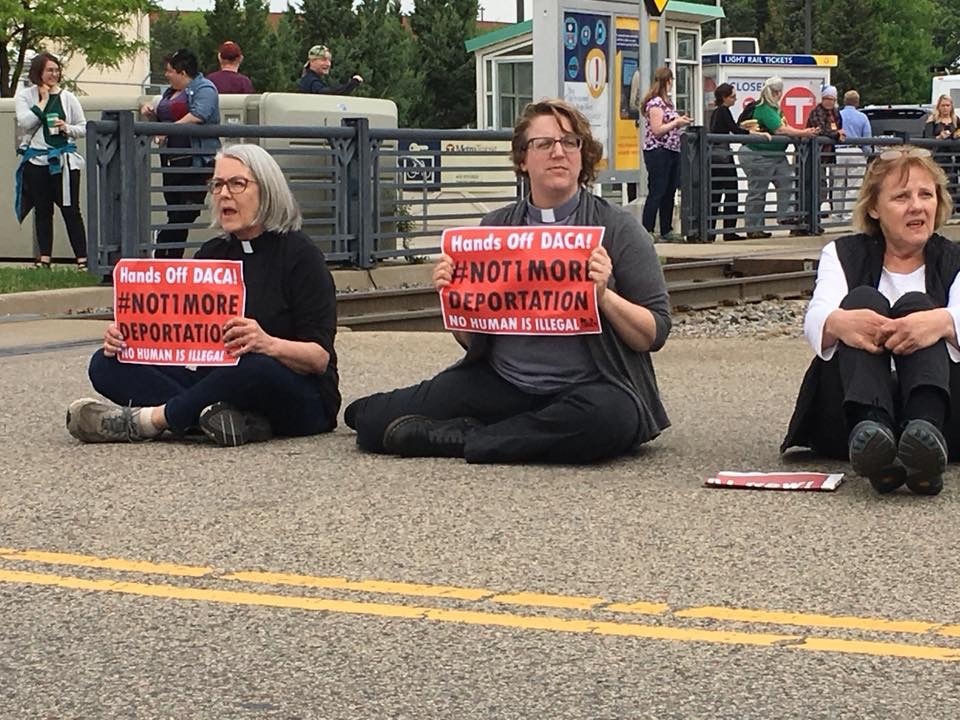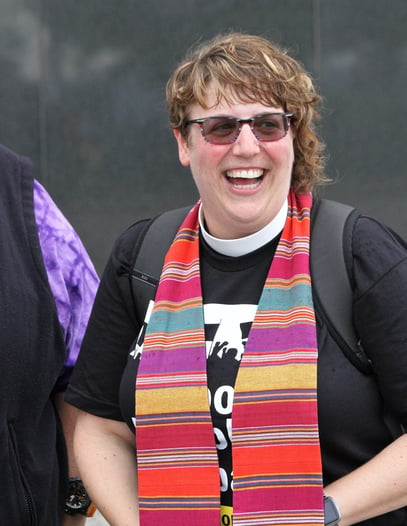A few weeks ago, I met with Terri Burnor, our new Director of Alumni and Church Relations. We were sitting in The Context Cafe, where, over the years, students have discussed homework and community, theological questions, politics and pop culture. It was the perfect milieu to talk with Terri about United’s alumni, our relationships with faith communities, and her experience as an alum of United.
.jpg?width=1600&name=Ordination1%20(1).jpg)
“I was a student here for four years doing my M.Div. program,” explains Terri, who graduated in 2015 with a concentration in women’s studies. “In some ways I feel like I haven’t left because I was a student, and then I was on the alumni council, and now I’m on the other side of it. I feel like I’m getting a really big gift in trying to see the institution in kind of a different way. You get to see the behind the scenes, how hard everybody is working, and how much people care about the school and where we’re going and what the possibilities are. And that is so energizing for me and why I wanted to come back on staff.”
Terri’s excitement about working “behind the scenes” at United, meeting alumni and collaborating with staff, is consistent with her commitments to community. Earlier this year, Terri was ordained within the Unitarian Universalist church at First Universalist Church in Minneapolis. She has also been a participant and organizer for the Poor People’s Campaign here in Minnesota. But as Terri tells it, she has not always been involved with community organizing: “When I came to United back in 2011, my life before had been pretty ordinary, in the most mainstream definition of ordinary. I hadn’t really engaged much in social justice work, operating in my own little world doing my own little thing. Coming here and really learning and seeing and being with people who are living out their values in profound ways, that really started me on this crash course about movement work and organizing and social transformation and how that comes from your own faith or values or worldview––whatever theological, spiritual or philosophical perspective you may come from.”

The activism she participated in as a student, and the activists she learned from in our faculty have profoundly impacted Terri’s current practice. “I was part of the steering committee of the Minnesota Poor People’s Campaign and seeing Carolyn Pressler and Sue Evans out there getting arrested, and two weeks later I was out there and I got arrested. There are connections between these different parts of community– United alums, current students, faculty, staff–– all engaged in the actual practice of living out who we are and why we came here in the first place.”
“We’re a small institution, and yet, when you’re out on the street and in relationship with grassroots organizers, we’re the ones that show up. We’re the ones that you’ll see there. That to me is a testament to who we are as a school.”

Terri’s experience in the UU church and her activism are grounded in relationship-building, which is likewise central to her work as Director of Alumni and Church Relations: “I am director of alum and church relations, so I get to do it both on the institutional side, what are our churches doing out in the world, as well as our individual alums. Part of what makes me so excited about this role is hearing stories, sharing stories, and making connections so that none of us are operating in isolation. We can see the different ways that we are engaging. Whether it is on smaller scales, within a church itself as a pastor or a priest working in ministry, we can see what they’re doing within and beyond their community. And then you have alums who came here who have no interest in working in a traditional religious institution working in what might seem like a purely secular venture, whether it’s corporate America or a nonprofit that has nothing to do with faith. And yet, they still chose to come here for a reason. How does that inform who they are in the work they do? I want to lift those up and see how the connections never end.”
Terri’s words about continued relationship have particular resonance in light of our campus move to St. Paul in January 2019. “The move is something that I hold with great respect and great care, because place and physicality have a lot of emotional tenor and literal resonance for people,” says Terri. “I take great care in really recognizing and understanding the wide range of emotion and feelings that people have. This place out here was a place where so many of us deconstructed and reconstructed who we are and who we want to be. I really honor that. I also am really proud of United for taking this big step and recognizing what it needed to do and not being afraid of that. There is a lot of power in that, and we need to claim that power. We could have shied away from it and been afraid and not taken that big of a risk, but we didn’t. We are moving into the city, a vibrant location that has so many access points and so many opportunities that frankly are not possible here. My hope is that we can both grieve together and remember together and celebrate together. We can honor our past. We can share our stories and we can know that those stories will continue on into wherever and however United will become.”

Reflecting on her time at seminary as well as the possibilities of the future, Terri sees that, at United “we are always striving and trying and growing and experimenting and seeing where we can push things and who we can be. The alums are doing the same thing! That continual relationship that we can share across and with each other doesn’t have to end: it’s dynamic. That is all part of the vision of what I want to engage with and bring forth at United. When you graduate that relationship keeps going in really positive, beautiful, and meaningful ways.”
As United continues to foster relationships with current alumni, future alumni, and different communities of faith, Terri’s wisdom and passion are indispensable. Terri embodies the power of a United education and the vibrancy of our alumni community. I can’t wait to see what she brings in her new role!




Your Comments :